Status Quo Interregional Meeting
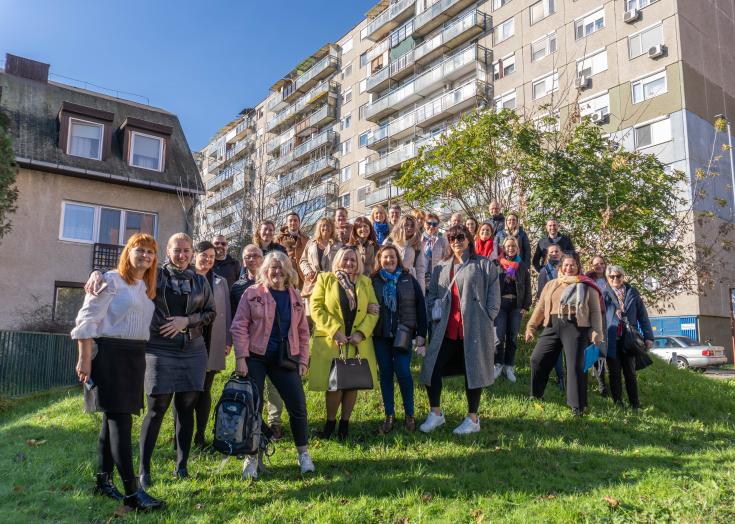
The partnership spent 2 days in Budapest, and managed to get a lot of work done: there were several workshops, presentations, and study visits.
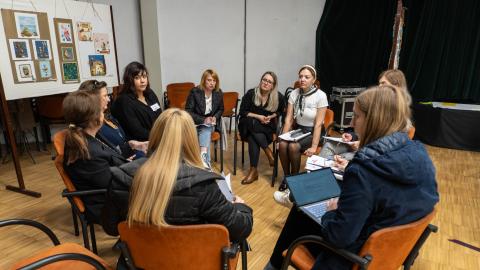
The first section of the thematic tasks were about the Status Quo analyses, that were the main tasks for the partners in the first semesters, and there was some information missing from most of them. In person it was easier to clarify the expectations, and partners could ask their questions directly. Eileen highlighted how filling every aspect of the document is important regarding the project: to see what good practices we might be able to implement, how we can progress with the project, we need to understand the organization from every aspect.
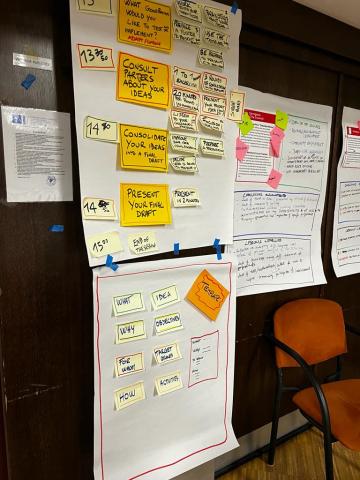
The other focus of the meeting was the Good Practices. Each partner created a poster of their Good Practices, and answered some questions about it, like what was the evidence of its success, what challenges they encountered, and what were the key lessons they learned. In the next step everyone examined the good practices and came up with some ideas, what could they implement in their cities. Partners developed these ideas in the workshop of Gerardo de Luzenberger, expert of Pordenone. Each partner got feedback from other teams on their ideas, which turned out to be very useful.
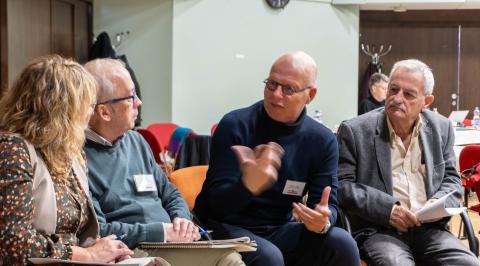
The hosting team, Budapest 18th district prepared an extra presentation on one of their Good Practices, as the venue of the meeting was also the place where the Cavalcade program took place. They showed videos, and photos of these fundraising events for their social institutes, and also organized an exhibition of the art created in these institutions.
The first day finished with a communication presentation, where the partnership reviewed the activities of the first semesters, and prepared for the upcoming tasks. They also got a special insight on how to deal with complex topics like social problems in today's communication environment. Yvette Petit presented the Good Practice of Heerlen's communication, Samen in de Buurt, where they created a common brand for all the projects going on in the neighborhood.
The second day started with the study visits, where two groups visited the Unified Social Institute’s two headquarters, the municipal institution responsible for the day care of the elderly and disabled and the agency responsible for the family assistance and child protective services in the district - CSIBÉSZ. The leaders of these institutions provided insight into the everyday life of these institutions, and answered the questions of the partners.
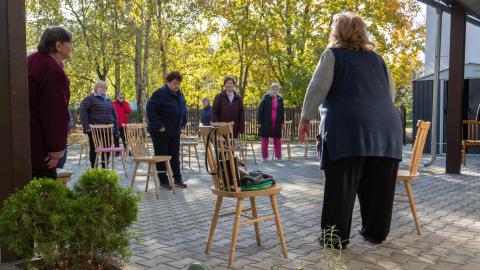
After the visits the partnership arrived back at the venue, and the next on the agenda was Heerlen's inspirational presentation on their progress on the pilot action by Tom Bindels and Richard van Beek.
The Masterclass workshop was also led by Gerardo de Luzenberger. The aim was to find topics for the upcoming masterclasses. Heerlen and Ireland decided to pick the topic of the breakthrough method. Aarhus and Pordenone would organize a masterclass on Relational Welfare, Galati and Budapest will work on a Masterclass titled „Creating value one step at the time”. These titles and topics serve as a starting point for organizing the masterclasses.
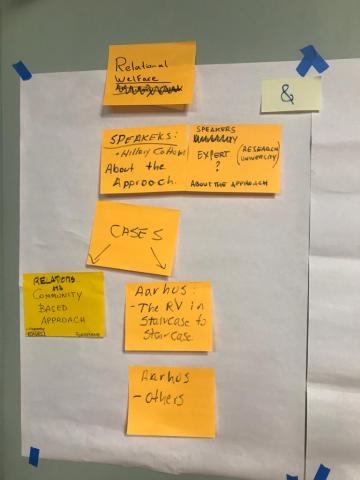
After the masterclass workshop Eva Bunbury continued with a sharing session on stakeholder involvement. She showcased some methods, how to keep stakeholders interested in the project, how to use or avoid icebreakers, and the partners also shared their experiences on the ongoing works with the stakeholders.
The last session was led by Kriszta Jenei-Sipos about daily project and financial management and reporting, to be up to date with all the upcoming tasks and obligations.